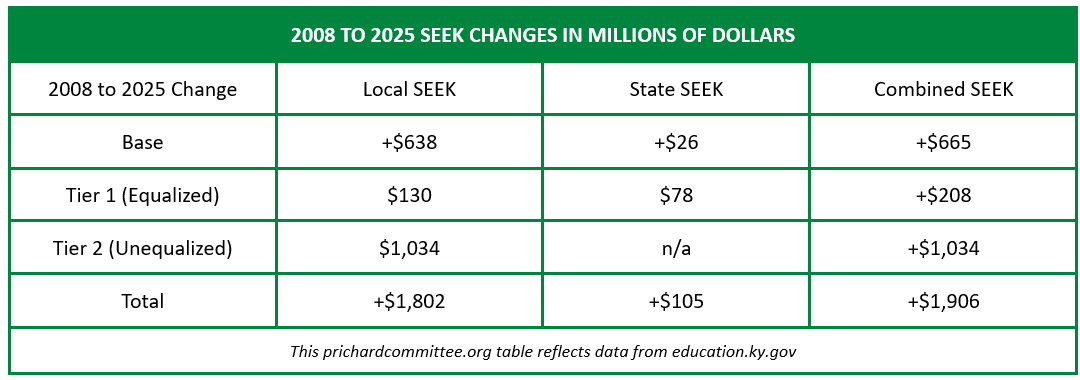In Kentucky public postsecondary education, male students are far behind their classmates in enrollment, bachelor attainment, and associate attainment.
They only match female learners in earning undergraduate certificates. Higher education has a history of making female students less welcome and moving them to lower levels of attainment, but the wheel has turned. Looking at data from the Council on Postsecondary Education, male students are the ones being served less well, and the differences are big enough to warrant real attention. Plus, most differences are getting worse. Here comes the evidence.
Enrollment Begins the Concern
Here’s a six-year comparison of who enrolled as undergraduates at Kentucky public institutions, vividly showing lower male enrollment. There are declines for both groups, but the male decline was 21% of enrollment and 12,699 students. The female loss was 11% and 9,538 students. Male students' share of enrollment dropped from from 42% in 2016-17 to 40% in 2021-22. For me, the chart warrants some questions about whether male students are being offered full welcome and empowerment.

Bachelor Degrees Add Concern
At the baccalaureate completion level, male recipients have also dropped: a decline of 791 graduates and 10% from public universities. Female recipients rose by 63 degree-earners and 0.6%. Male students were 43% of all recipients in 2016-17 and 40% in 2021-22. Once again, the chart suggests real issues about how our institutions work for male learners.

Associate Degree Also Warrant Concern
Across the years, shown, male students also earned fewer associate degrees. The decline was smaller, with losses of about 4% and 132 graduates. The female trend was very small growth, increasing 0.3% and 16 recipients. Male students received 36% of the 2021-2022 associates, down from 27% in 2016-17. One more time: the differences here don't look like full empowerment and welcome for students of both genders.

Other Credentials Look Better
Kentucky has put important effort into supporting other undergraduate credentials that students can earn more quickly, often designed to qualify students for immediate work opportunities. There, the pattern is very different, with credential-earning from Kentucky public institutions rising for both groups, rising faster for male students, and looking proportionate to Kentucky’s total population both at beginning and end. Over the five year span, male recipients rose 2,356 and 49%, compared to 1,924 growth and 39% for female recipients. The change moved male students from being 49% of degree earners to 50.4%. This chart comes closer to looking like approaches that work for all.

Addressing the Concerns?
When I look at data on K-12 education or on early childhood, I know I’ve done some study. I’ve listened to folks close to the work at some length, and I’ve read thoughts from others who have done systematic study. I don't have all the answers, but I've done enough due diligence to have starting ideas on strategies that can help.
When I look at this postsecondary puzzle, I don’t bring that background. Accordingly, my starting ideas for this challenge are all about learning more, including:
- Gathering perspectives from students in college now and students considering college now
- Gathering thoughts from educators working with those students
- Finding and studying expert analysis and recommendations
I’ll try hard not to rush to conclusions about roots of this problem or solution steps that could be effective.
The part that's already clear to me is simply that this issue deserves attention and effort. Male Kentuckians are not gaining as much as female students from our postsecondary institutions, and both the gaps and the trends are big enough that many of us should be concerned. Let’s think together about this.












